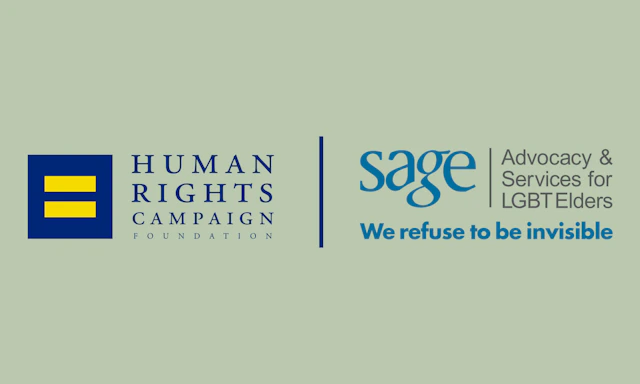

LEI Survey & Criteria Resource Guide
The LEI Survey & Criteria Resource Guide is a comprehensive instructional and reference accompaniment to the Long-Term Care Equality Index (LEI) survey.
The resources provided here are certainly not the only ones available to help guide your community in LGBTQ+ person-centered care; however, we hope they can help you get started on implementing best practices in equitable and inclusive care for LGBTQ+ residents, visitors, and staff.
LEI Survey & Criteria Resource Guide covers all sections of the LEI survey in great detail, here you can find:
- Explanations of why these policies and practices we ask about are important
- Example policies for reference
- Worksheets and tools for participation
- And more
We hope you find the LEI Survey & Criteria Resource Guide helpful in taking steps to ensure equitable and inclusive treatment for LGBTQ+ residents, families, and employees at your facility. If you have any further questions about the LEI, please do not hesitate to contact our team at LEI@hrc.org.
Downloadable Resources for Participating in the LEI
The LEI Scoring Criteria Overview
The LEI promotes LGBTQ+ inclusive policies and practices in residential long-term care and senior housing. The LEI criteria consist of emerging best practices known to improve the experiences of LGBTQ+ older adults, visitors, and staff.
The LEI has four core objectives which are reflected in its survey criteria:
- Ensure foundational non-discrimination protections for residents, visitors, and staff and provide training in LGBTQ+ Resident Centered Care
- Demonstrate progress towards inclusion of LGBTQ+ resident services and support
- Foster an inclusive workplace by providing LGBTQ+ inclusive employee policies and benefits
- Demonstrate engagement with and a public commitment to the LGBTQ+ community
Criteria 1: Non-Discrimination and Staff Training
The Non-Discrimination and Staff Training criterion represents policies and practices that are considered foundational to LGBTQ+ resident-centered care. The section includes important elements that should be completed first and which, when complete, will provide a strong base from which to grow. The resource pages include sample policies and examples of how long-term care communities and senior housing providers can meet this criterion.
Criteria 2: Resident Services and Supports
This criterion includes a wide variety of best practice recommendations drawn from federal nursing home regulations under the Centers for Medicaid and Medicare Services (CMS), guidance from the National Long-Term Care Ombudsman Program, and additional research and reports regarding the needs of LGBTQ+ older adults living in long-term care and senior housing communities. Three subsections compose this criterion.
Criteria 3: Employee Benefits & Policies
This criterion is designed to familiarize communities with best practices to promote equity and inclusion for LGBTQ+ employees. It is critical that LGBTQ+ employees, like LGBTQ+ residents, receive equal treatment, particularly vis-à-vis health-related benefits and policies.
Criteria 4: Resident & Community Engagement
This criterion helps long-term care communities ensure that 1) LGBTQ+ residents are connected to the larger LGBTQ+ community and 2) that the long-term care or senior housing community builds relationships with the larger LGBTQ+ community.
Take the Commitment to Caring Pledge
The Commitment to Caring Pledge is the first step to participating in the Long-Term Care Equality Index (LEI). Visit our pledge page to learn more!
- Topics:
- Participating Communities


